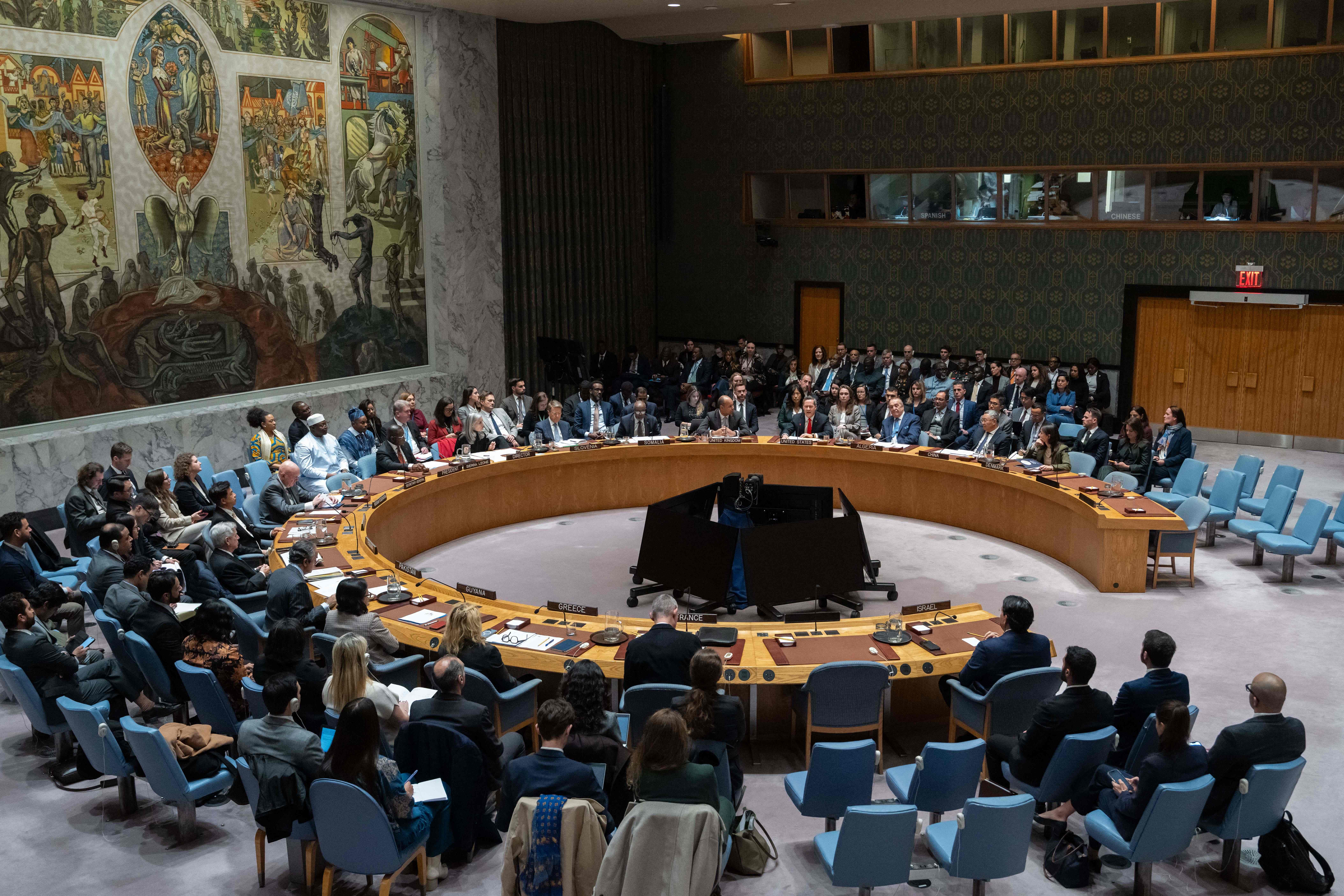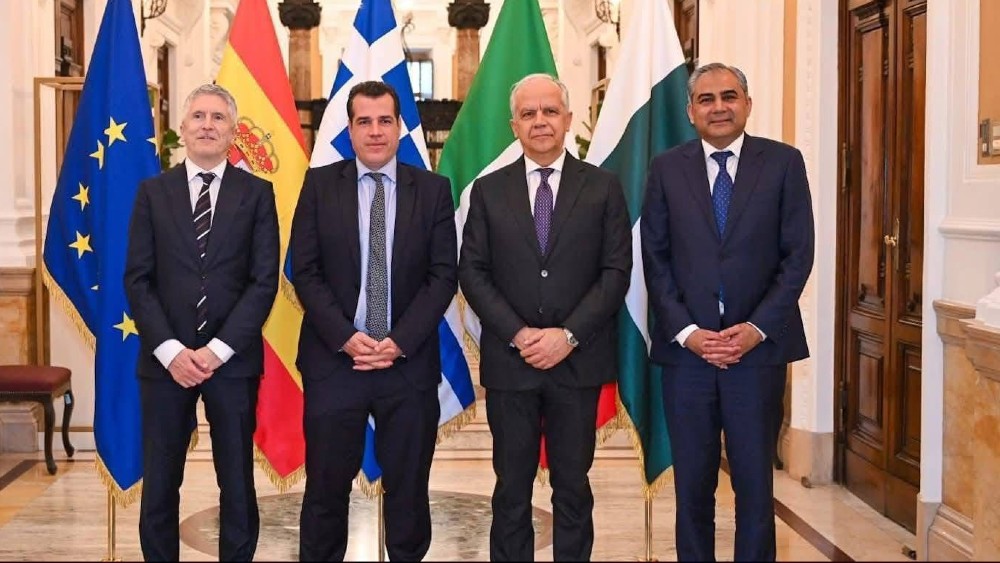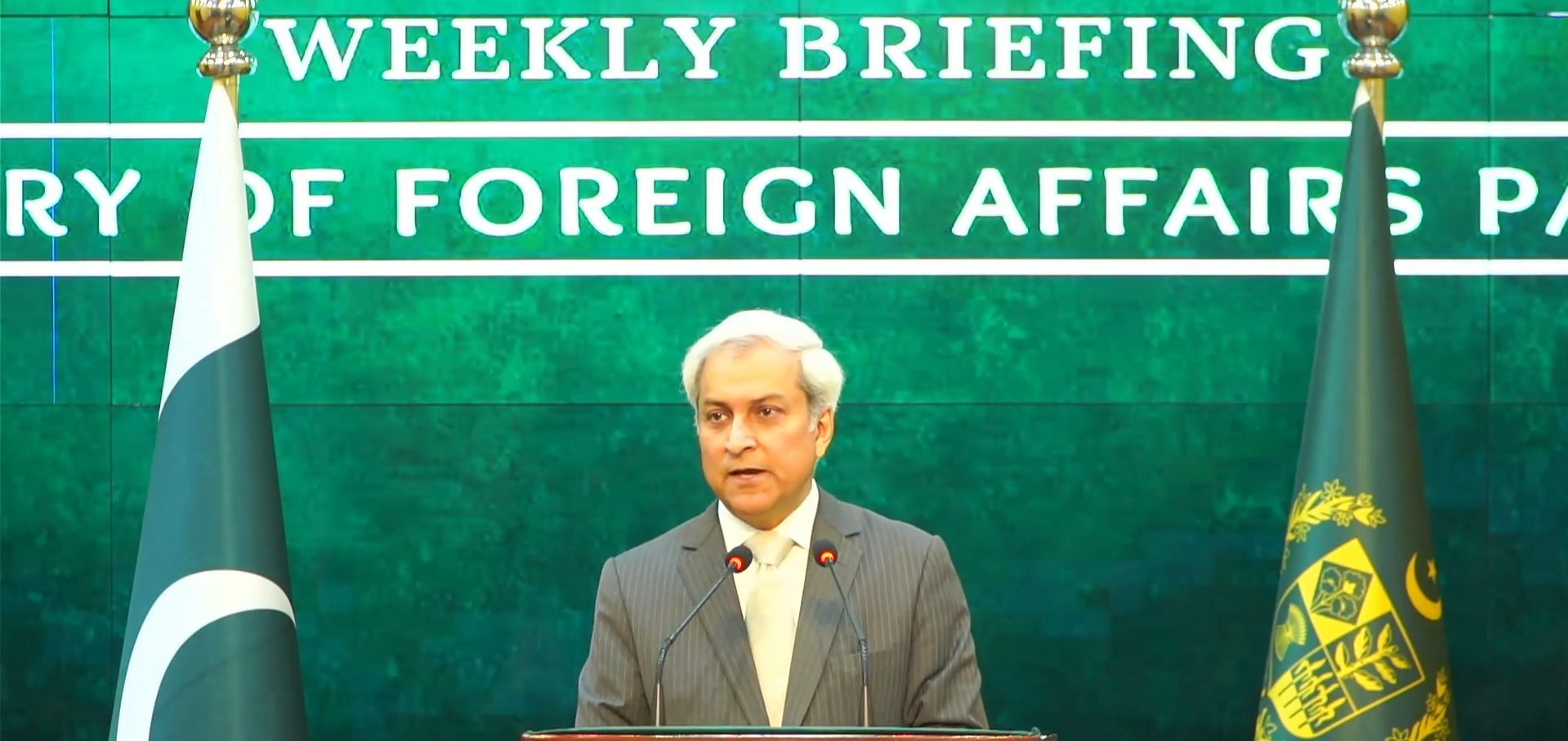ISLAMABAD: The United Nations Security Council on Monday voted in favor of a US-drafted resolution endorsing President Donald Trump’s comprehensive plan to end the Gaza conflict, including the deployment of a Temporary International Stabilization Force (ISF) and steps toward a future Palestinian state.
The resolution, adopted with 13 votes in favor and abstentions from Russia and China, establishes the Board of Peace, a transitional oversight body for Gaza with a mandate until 2027.
The ISF is tasked with protecting civilians, securing humanitarian aid corridors, supporting border security, and assisting in the demilitarization of the Gaza Strip, with its full effectiveness contingent on the complete withdrawal of Israeli troops.
Trump hailed the development, saying it would lead to "further Peace all over the World."
The vote was "acknowledging and endorsing the BOARD OF PEACE, which will be chaired by me," he wrote on social media. "This will go down as one of the biggest approvals in the History of the United Nations [and] will lead to further Peace all over the World."
Commenting on the resolution, Pakistan’s Permanent Representative to the UN Ambassador Asim Iftikhar Ahmad said Islamabad voted in favor “with the primary objective, in the immediate term, to stop the bloodshed, to save the lives of innocent Palestinians including women and children, to maintain the ceasefire, to ensure much-needed large-scale humanitarian relief, and to secure the full withdrawal of Israeli forces from Gaza.”
He emphasized Pakistan’s support for the plan as part of a coalition of eight Arab-Islamic countries, adding, “We have welcomed that initiative because not only it got the ceasefire on ground, it subscribed to the need for humanitarian assistance, reconstruction, provision of a secure and stable environment, and the hope for a credible pathway to Palestinian self-determination and statehood.”
Ahmad stressed that the establishment of the Temporary International Stabilization Force could be stabilizing if guided by a clear peacekeeping mandate consistent with UN norms.
He noted that protection of civilians would be a key priority for the ISF and that the force’s mandate would only be effective after a complete withdrawal of Israeli troops.
The Pakistani ambassador underlined that executive and administrative authority in Gaza must remain with Palestinians through a Palestinian Committee, and that the Palestinian Authority’s role is central to ensuring credible governance, reconstruction, and Palestinian ownership of the process.
He also called for ending the occupation and opening a credible, time-bound political process toward a Palestinian state, anchored in international law and relevant UN resolutions.
“Pakistan stands shoulder-to-shoulder with the people of Palestine,” he said. “Their suffering is our anguish; their resilience is our pride; their aspirations our cause.”
The resolution further emphasizes resuming large-scale humanitarian aid through the UN, Red Crescent, and other international agencies, while affirming no annexation or forced displacement of Palestinians and maintaining the territorial contiguity of Gaza and the West Bank as essential for a viable, sovereign state.
The adoption of the resolution signals a significant international effort to stabilize Gaza, enforce the ceasefire, and create mechanisms that could eventually pave the way for a two-state solution.






.jpg)